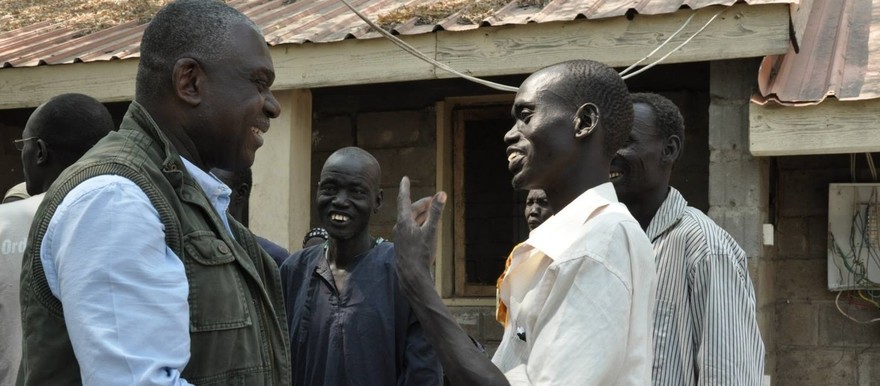The European Union Delegation to South Sudan and ambassadors of several European nations have called for further review of the NGO bill by the both the public and the yet to be formed transitional government.
“The Heads of Mission express their grave concern at the potential consequences of the passing of the Non-governmental Organisations bill, and the Relief and Rehabilitation Commission bill in Parliament on 2 February,” they announced Friday. “Restricting the work of NGOs could have a significant negative impact on the people of South Sudan.”
The diplomats referred to the recent Communique from the 55th IGAD Council of Ministers, which demands immediate action by the parties to ensure “unconditional” humanitarian access across the country to avert further crisis.
They also pointed out that “the NGO bill is due to be reviewed by the Transitional Government of National Unity, involving a process of public consultation ensuring that such legislation complies with international best practice in regulating the activities of NGOs.”
Chapter 3, Article 1.2.5 of the Agreement on the Resolution of the Conflict in South Sudan says that the NGO bill should be subject to review by both the new power-sharing government and the public. The bill had already been introduced in parliament in draft form prior to the signing of the peace agreement, but was not passed until a vote in parliament earlier this week.
The peace agreement says: “During the transition, the TGoNU (Transitional Government of National Unity) shall… review the draft Non-Governmental Organizations Bill, 2013 and submit the legislation to a process of public consultation, to ensure that such legislation complies with international best practice in regulating the activities of non-governmental organizations in South Sudan.”
Additionally, Chapter 3, Article 1.2.3 obliges the government to “fast track procedures and institutions for the granting and renewal of visas required by international personnel participating in the humanitarian relief effort.”
The bill passed by parliament this week imposes restrictions on the number of foreign aid workers that a given relief group can employ in the country and it adds to the documentation required by aid workers in order for them to carry out their jobs.
Meanwhile, in a similar statement to the EU one, the UN Office for Coordination of Humanitarian Affairs also called for public consultation on the NGO bill and for further review by the transitional government.
Eugene Owusu, Humanitarian Coordinator for South Sudan said, “I am deeply concerned that the adoption of this Bill will have wide-ranging and negative ramifications for the humanitarian operation at a time when needs are higher than ever.”
He added, “I therefore urge the Government to uphold both the letter and spirit of the peace agreement on this critical issue.”
Lastly, the South Sudan NGO Forum, a consortium of national and international NGOs, also made a comment on the bill’s passage.
“We are confused about why the two Bills were passed when the peace agreement says it should be reviewed by the Transitional Government,” said Lindsay Hamsik, Policy and Advocacy Advisor for the Forum.
“We are disappointed that NGOs were not consulted,” Hamsik added. “There are a number of unclear provisions and we are committed to working with RRC to clarify them and ensure that we can continue to effectively deliver urgently needed life-saving assistance to the people of South Sudan.”
Photo: UN Humanitarian Coordinator for South Sudan Eugene Owusu
Related:
Aid restricted in Mundri as people starve
S Sudan MPs pass law restricting aid groups




